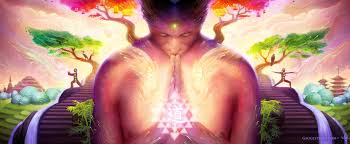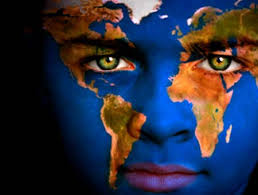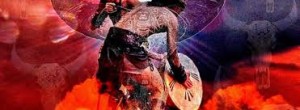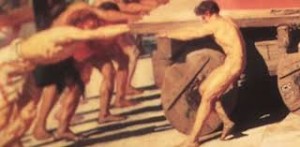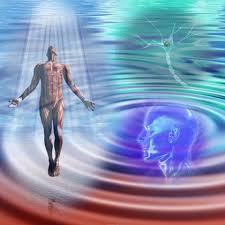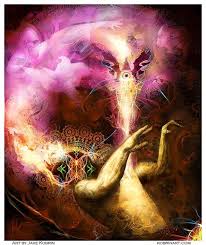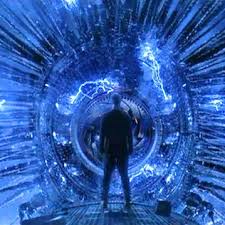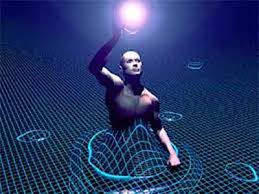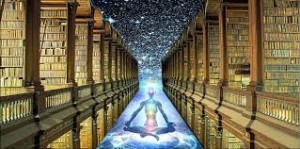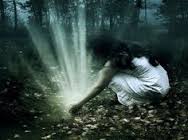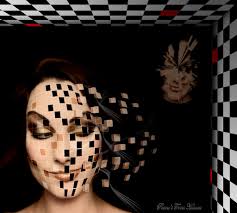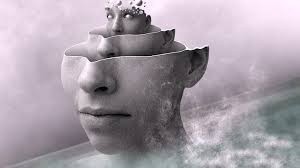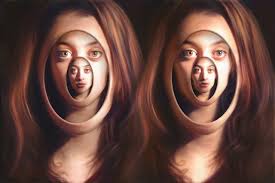There are other kinds of knowledge. These deal with organizations with which we are generally not familiar. It is not merely a matter of learning new methods to acquire knowledge, then, but a situation in which old methods must be momentarily set aside– along with the type of knowledge that is associated with them.
It is not a matter, either, of there simply being one other category of knowledge, for there are numerous other such categories, many of them biologically within our reach. Various so-called esoteric traditions provide certain methods that allow an individual to set aside accepted modes of perception, and offer patterns that may be used as containers for these other kinds of knowledge. Even these containers must necessarily shape the information received, however. Some such methods are very advantageous, yet they have also become too rigid and autocratic, allowing little room for deviation. Dogmas are then set up about them so that only a certain body of data is considered acceptable. The systems no longer have the flexibility that first gave them birth.
The kind of knowledge upon which we depend needs verbalization. It is very difficult for us to consider the accumulation of any kind of knowledge without the use of language as we understand it. Even our remembered dreams are often verbalized constructs. We may also use images, but these are familiar images, born of the educated and hence prejudiced perceptions. Those remembered dreams have meaning and are very valuable, but they are already organized for us to some extent, and out into a shape that we can somewhat recognize.
Beneath those levels, however, we comprehend events in an entirely different fashion. These whole comprehensions are then packaged even in the dream state, and translated into unusual sense terms.
Any information or knowledge must have a pattern if we are going to understand it at all. Information has nothing to do with words but an overall comprehension of the nature of, a direct knowing. Use one’s own abilities as a container. This direct kind of knowledge is available through desire, love, intent or belief.
Many kind of knowledge. Think of them as states of knowledge. Perception of any of these takes a consciousness attuned to each. In our “waking” condition. We can operate at many levels of consciousness at once, and deal therefore with different systems of knowledge. In our “dream” condition, or rather conditions, we form links of consciousness that combine these various systems, creatively forming them into new versions. “Waking” again, we become consciously aware of those activities, and use them to add to the dimensions of our usual state, creatively expanding our experience of reality. What we learn is transmitted automatically to others like us, and their knowledge is transmitted to us.
We are each consciously aware of these transmissions. In the terms usually familiar to us, we think of “the conscious mind.” In those terms, there are many conscious minds. We are so prejudiced, however, that we ignore information that we have been taught cannot be conscious. All of our experience, therefore, is organized according to our beliefs.
It is much more natural to remember our dreams than not to remember them. It is presently in the vogue to say that the conscious mind, as we consider it, deals with survival. It deals with survival only insofar as it promotes survival in our particular kind of society. In those terms, if we remembered our dreams, and if we benefited consciously from the knowledge, even our physical survival would be better assured.
One level of dream life deals particularly with biological condition of the body, giving us not just hints of health difficulties, but the reasons for them and the ways to circumvent them. Information about the probable future is also given to help us make conscious choices. We have taught ourselves that we cannot be conscious in our dreams, whoever, because we interpret the word “conscious” so that it indicates only our own prejudiced concept. As a result, we do not have any culturally acceptable patterns that allow us to use our dreams competently.
Trance states, daydreaming, hypnotism — these give us some hint of the various differences that can occur from the standpoint of waking consciousness. In each, reality appears in another fashion, and for that matter, different rules apply. In the dream state far greater variations occur. They key to the dream state, however, lies in the waking one as far as we are concerned. We must change our ideas about dreaming, alter our concepts about it, before we can begin to explore it. Otherwise our own waking prejudice will close the door.
